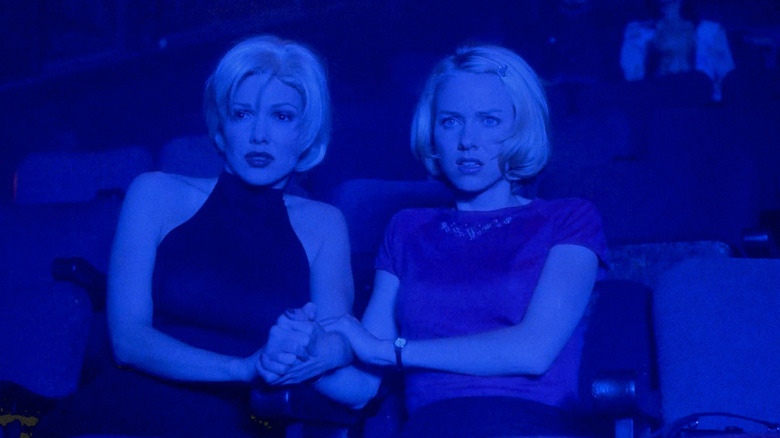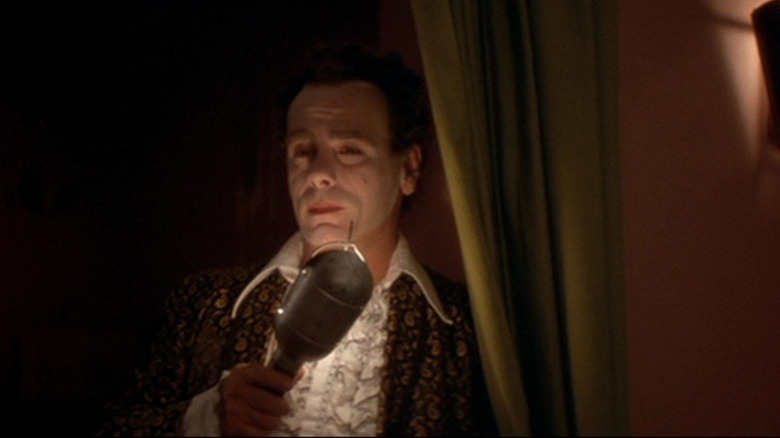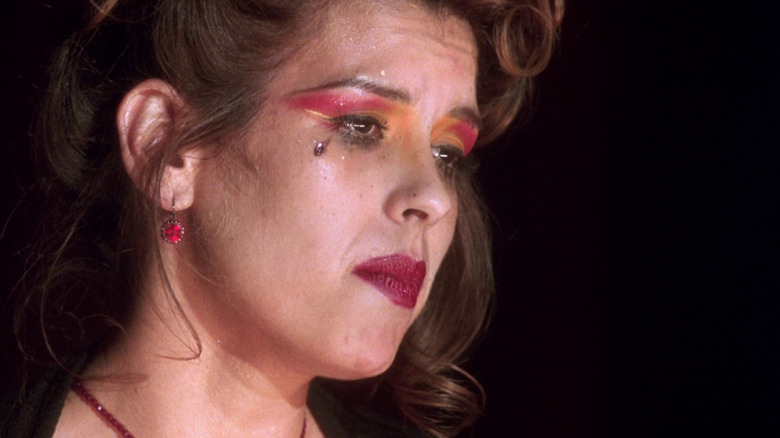One Of Mulholland Drive's Most Memorable Scenes Came About By A Stroke Of Fate
We might not have gotten a new David Lynch movie at Cannes this year, but we will still always have the rest of his incredible filmography. Among one of his best is "Mulholland Drive," the 2001 neo-noir that famously begins unraveling into a surrealist nightmare. The performances of frequent Lynch collaborators Naomi Watts and Laura Harring are arguably the reason why the movie has gained such high praise — their chemistry, both platonic and romantic, along with the seamlessness of their third-act changes is just too good.
It is this chemistry that is turned upside down during the iconic Club Silencio scene. Serving as a bizarre bridge between the film's second and third acts, it is one that is instantly memorable and iconic due in part to Rebekah Del Rio's haunting rendition of Roy Orbinson's "Crying." However, in an interview with The Criterion Collection, Lynch revealed that this wasn't his first time dealing with this particular song.
In dreams, you're mine all of the time
According to Lynch, he had wanted to use the song in his 1986 film "Blue Velvet." He recalled hearing it on the radio while he was filming, saying to himself, "Jeez! I've got to get that song to see if it would work in the film." I mean, it's Lynch. Did you expect any other reaction?
He originally envisioned "Crying" being the song that Ben (Dean Stockwell) would lip-sync to on the orders of the gas-huffing gangster Frank (Dennis Hopper). Although it initially sounded like the perfect fit, Lynch eventually didn't think it was "quite right" for the scene, settling instead for Orbinson's "In Dreams."
To be honest, this was probably the right call. Try, just for a second, to imagine hearing "In Dreams" in "Mulholland Drive" and "Crying" in "Blue Velvet." It just seems wrong, especially considering how essential both songs end up being in their respective scenes. Lynch described his decision to replace "Crying" with "In Dreams" without knowing it would reappear in one of his other movies as an example of how things change "in the most beautiful ways," and we are inclined to agree.
Left me standing all alone, alone and crying
So, how exactly did "Crying" end up in "Mulholland Drive?" Lynch described it as a regular meeting with a Creative Arts Agency agent, who recommended Del Rio to the director, who was interested in having a club scene. The meeting was set up, the trio met for coffee and a recording session, and Del Rio blew Lynch away. He recalled:
"Rebekah's got one of the most beautiful voices in the world, so I said, "Damn, this is unbelievable!" And I start thinking about it. We listened to it after she left, and I said, "She's gonna be in the film." I'd had this other idea that I'd written down one night, so that jumped in and provided the slot for Rebekah."
Yep, without that wonderful first impression, the Club Silencio scene wouldn't have been quite the same. That recording ended up being the terrifyingly beautiful version heard in the final cut of the film. The fact that it was her first take just seals the deal — "Crying" simply was meant to be in "Mulholland Drive."


